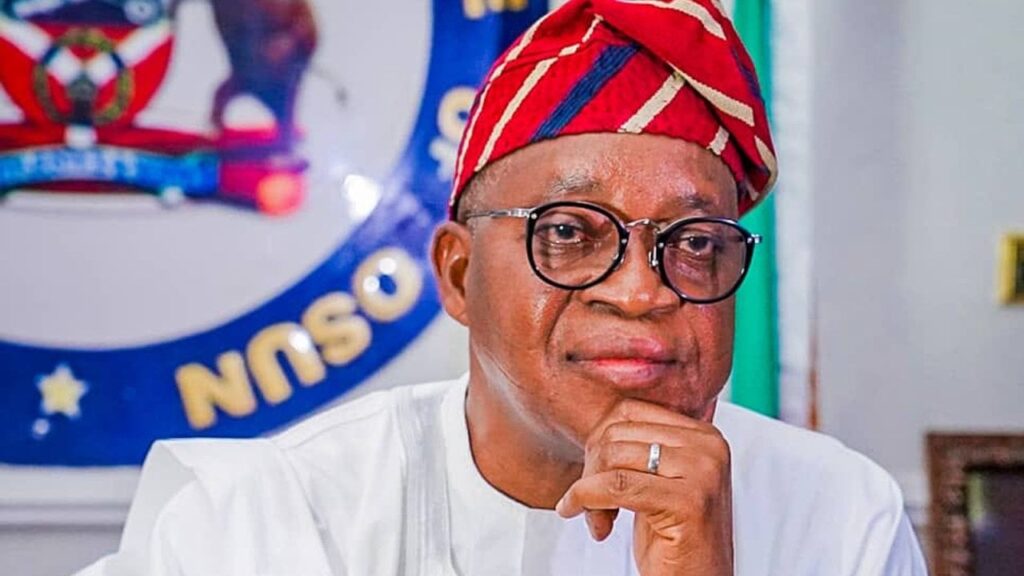The Federal Government has called for a harmonized framework among the International Labour Organisation (ILO), International Maritime Organisation (IMO), and the World Health Organisation (WHO) to support safe working conditions, prevent labour exploitation, and reinforce international labour standards across the maritime sector.
At the 353rd session of the ILO governing body, held between March 10 and 20, 2025, Dayo Mobereola, Director General of the Nigerian Maritime Administration and Safety Agency (NIMASA), who represented the Minister of the Federal Ministry of Marine and Blue Economy, Adegboyega Oyetola, stressed that the role of seafarers and maritime workers must be recognized, held in high esteem, and treated fairly, given their critical contributions to global trade and the maintenance of uninterrupted supply chains.
In a statement by NIMASA’s Head of Public Relations, Osagie Edward, the Minister noted that Nigeria, as the largest supplier of seafarers and port workers in Africa, plays a critical role in sustaining global trade and ensuring supply chain resilience, hence its insistence on providing maritime workers a fair playing ground.
Oyetola explained, “We recognize that the world’s economy depends heavily on seafarers and maritime professionals who operate vessels, facilitate port operations, and ensure the seamless movement of goods across international waters. These key workers often face labour rights challenges, including unfair employment conditions, restricted mobility, and inadequate access to welfare provisions—issues that were exacerbated during the COVID-19 pandemic.”
He continued, “It is in this regard that Nigeria has been at the forefront, both within the ILO and the International Maritime Organisation, advocating for the formal designation of seafarers as key workers.
“This recognition is essential to ensuring legal protection for seafarers, port workers, pilots, and marine surveyors under both ILO and IMO conventions; guaranteed priority access to medical care, vaccines, and mobility rights during public health crises; and fair, equitable treatment in labour contracts in compliance with the Maritime Labour Convention (MLC 2006).”
The Minister also pointed out that the agenda at the session which included deliberations on global labour policies, country-specific developments under the ILO’s supervisory procedures, the Programme and Budget for 2026-2027, decent work in supply chains, the Global Framework on Chemicals, and various country-specific labour issues resonates strongly with Nigeria’s priorities, particularly in the maritime and blue economy sectors.
He explained that Nigeria has taken bold domestic steps to improve the welfare of its maritime workforce.
“Through our National Seafarers Development Programme (NSDP), we have expanded training opportunities and improved employment pathways for Nigerian seafarers, enhancing their competitiveness in the global shipping industry.
“We have also strengthened port security, ensured compliance with international safety standards, and enhanced labour rights enforcement so that our maritime workers operate under dignified, fair, and secure conditions,” he said.
Furthermore, the Minister intimated to the ILO governing body Nigeria’s intention to contest a seat in the IMO Council’s Category C.
This move will provide the country an opportunity to advocate for stronger global regulations that protect maritime labour rights, push for enhanced technical cooperation and capacity-building for developing nations, and strengthen Africa’s voice in shaping IMO policies that promote fair labour conditions, sustainable maritime practices, and improved security in international waters.
“In light of Nigeria’s commitment to the policies and guidelines of the ILO, IMO, and WHO, we are reinforcing our dedication to these esteemed international agencies.
“Nigeria intends to play a more significant role in ensuring that both Nigeria and Africa are visible in the international community. For this reason, Nigeria will be contesting for a seat in Category C of the IMO Council for the 2026-2027 biennium,” the Minister added.
He pledged Nigeria’s commitment to collaborate with global stakeholders to secure a better future for shipping, global supply chains, and robust maritime labour policies.
“Nigeria stands ready to work closely with all partners to drive policies that prioritize the welfare, dignity, and protection of seafarers and port workers.
“We urge the international community to support Nigeria’s vision at both the ILO and IMO, ensuring that Africa’s largest maritime workforce is recognized, protected, and empowered for the benefit of global trade and economic stability.
“Together, let us build a maritime industry that is not only secure and sustainable but also just and equitable for all those who serve at sea and in ports worldwide.”















